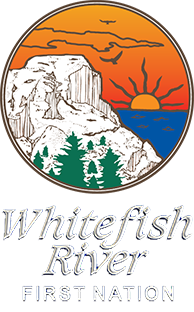1761
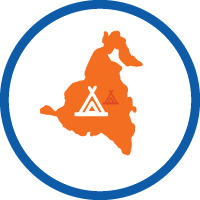
Alexander Henry reaches island called LaCloche which is inhabited by a large village of Indians.
Mid 1800’s

The timber industry replaces the fur trade industry, settlement moves from Wardrope Island to Old Birch Island (mainland).
Before Chief Shawanosowe, Ogimaa White Porcupine.
Before 1800
Ogimaa Giigdid.
1836
The Bond Head Treaty is signed by Chief Shawanosowe.
1840
Chief Shawanosowe and family are listed as residing in Manitowaning.
1850

In September, Chief Wabakekik is the 4th signer of the Robinson Huron Treaty.
Hudson Bay Post located at “French Town”, McGregor Point.
1851
French Trading Post located at French town. Old Village area known as French town.
Survey work on Whitefish River First Nation #4. The size of the reserve recorded in the treaty did not match the expectation of Chief Waubekeke. John Dennis is the surveyor.
1859

In May, Crown approves a lease of a mill located on the Whitefish River First Nation to William Cayley. It is a 21 year lease with an annual rent of $50.
1862
The Manitoulin Treaty is signed by Chief Paibomsai.
The treaty is signed by Ogimaa Beness, Baibomsai and Keg-hik-god-beness all members of Whitefish River Band.
1865
August 19, a surrender of the northern portion of Whitefish River is taken. The surrendered land is sold for the benefit of the band.
1868
Chief Baibomsai and his daughters are recorded as residents on the mainland reserve of Whitefish River.
1870’s
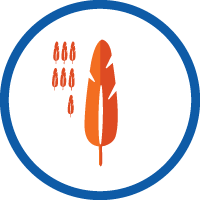
Band surrenders North portion of reserve to government.
Chief Paibomsai writes a letter to Governor General, sites 7 generations of chiefs that he is told about.
1875
Chief John Nahwegahbow protests sale of islands by the Crown. A letter is sent to the Governor General.
Whitefish River First Nation send petition to Indian Branch seeking reassurance about their reserve. They trace their chiefs from Shawanosowe, Waubekeke, Ogimaa Benais to Baibomsai.
1878-1888

Chief John Nahwegahbow is the first Chief to receive pay as Chief, $50/year.
The band arrange that their chief be paid $50 annually.
1881
Whitefish River receives formal education.
Buchner buys LaCloche Island.
Protest sale of LaCloche Island by Chief John Nahwegahbow to Governor General.
1883

School is operated in Whitefish River First Nation.
1890-1891
Arthur Manitowashing, son of Baibomsai and grandson of Shawenouseway calls LaCloche Asin-ma-twai-wai, “Gives oral history of Bell Rocks”.
1891
79 members are living on Whitefish River #4.
1896

August 21 Band members are no longer receiving 1862 treaty interest money despite having been party to the treaty.
1897
Chief James Nahwegahbow writes letter requesting band be allowed to retain Birch Island (Wardrop Island).
1906

Railway goes through Whitefish River First Nation.
1906-1907
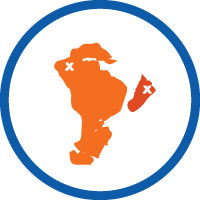
Settlement movies from old Birch Island to the western part of the mainland, which we now know as Whitefish River First Nation.
1920’s
WRFN known as Ponsett Station.
1920

Hawkin’s Saw mill site established until 1980’s.
1920’s to 1930’s
Anglican Church switches to Roman Catholic.
1929
The first post master is Augustine McGregor.
Early 1930’s
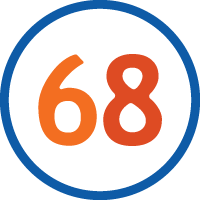
Highway 68 runs through community.
Prior to 1931 the school is located in the small white church.
1931-2007
Shawanosowe School is located on the Bay of Islands Road.
1933
University of Michigan, Dr. E. Greenmail takes human remains.
1934

Shawanosowe School, Christmas Concerts begin.
1940 – 1942
Church built, St. Gabriel La Lemonte.
1943
August 1-3, President Franklin D. Rosevelt is vacationing in Whitefish River. Some community members are guides on his fishing trips in our waters. His vacation is just prior to the historic Québec conference.
1940 – 1950

Old Cemetery closes at old village road. New cemetery opens at current location.
1960’s – 1970’s
Television series “Adventures in Rainbow Country” is filmed at Rainbow Lodge in Whitefish River.
Early 1960’s

Americans buy islands in McGregor Bay and Bay of Islands.
Rebecca McGregor and Victoria McGregor are the first two women to become councillors in Whitefish River.
1962
Art Nahwegahbow is chief and also had a part on the Television series, “Adventures in Rainbow Country”
1960 – 1965
The road that runs through Whitefish River is widened.
Late 1960’s

Canada Cement searches for lime stone in the Old Village Road area.
1969
October 8th, logo is changed from Indian hear to a river with a birchbark canoe and birch trees.
1971
Whitefish River’s first Logo designed by Nancy Jacko.
1972
Lafarge is established in the Community.
School name is changed from Birch Island Day School to Shawanosowe School.
1973

First Winter Carnival.
1979
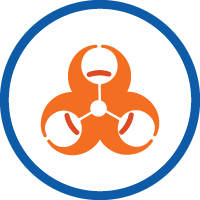
Whitefish River First Nation is quarantined for virus diphtheria.
1980’s
Old community hall is the Band Office today.
Redesign of current community logo by Kelvin “Pete” Nahwegahbow.
A series of films are shot in the community.
1981

Dave Nahwegahbow is the first Lawyer from the community.
Whitefish River joins first Tribal Council in Canada, UCCM under Chief James McGregor.
1982
Leona Nahwegahbow is the first woman chief elected in Whitefish River First Nation.
1984

Health centre is located beside band office.
1985 – 1990
The railway that ran through Whitefish River First Nation is gone.
1988 – 1990

WRHN Community Centre is built.
1992
May 19th, 25 year anniversary of the Administration Office.
1995
710 area settlement of land.
1997

New water treatment plant.
2000
Fibre optics goes through Whitefish River First Nation via Hwy 6.
2001

New board posted on Hwy 6.
Reconstruction of POW WOW grounds, new arbor built, located at sunshine alley.
WRFN first department is constructed.
2004
June 11, Lieutenant Governor James Bartleman visits Shawanosowe School and reads a story to the children.
Veterans Memorial established.
New community landfill site.
Community colours Blue and White re-established as well as up-dated community flag.
New housing in village using CMHC (55 units).
Pow wow grounds revitalization project.
2005

Return of human remains from the University of Michigan taken in 1933.
Whitefish River First Nation sends their first girls team to the Little NHL. Thirteen young girls aged 12-14, donned their red and white Thunderwolves jerseys and proved that they belonged in the tournament.
June 18, the Stanley Cup arrives in Birch Island for the annual minor hockey banquet.
New Maple Height sub-division built.
Band Finalized 20 year capital plan, 2005 – 2025
2007
New Shawanosowe School opens on Maple Heights.
Whitefish River Hosts U.O.I. (Union of Ontario Indians) Grand Council.
2008
Grand re-opening of community centre.
Grand re-opening of New Rainbow Lodge, Chief Franklin Paibomsai, Violet McGregor and Carol Hughes are present.
Shaking tent ceremonies are held at Rainbow Lodge.
Whitefish River First Nation appears in the book, VISITS WITH LORD STANLEY.
New health centre opens in Whitefish River First Nation on Rainbow Ridge.
AFN declares a National Day of protest. The start point is at WRFN and there is a gathering of FN’s at the community hall.
Youth Centre located in Health Centre building.
WRFN protests HST by federal government.
2009
Construction of new water treatment plant on former Shawanosowe School site.
2010

Whitefish River host 39th Annual Little NHL Tournament.
